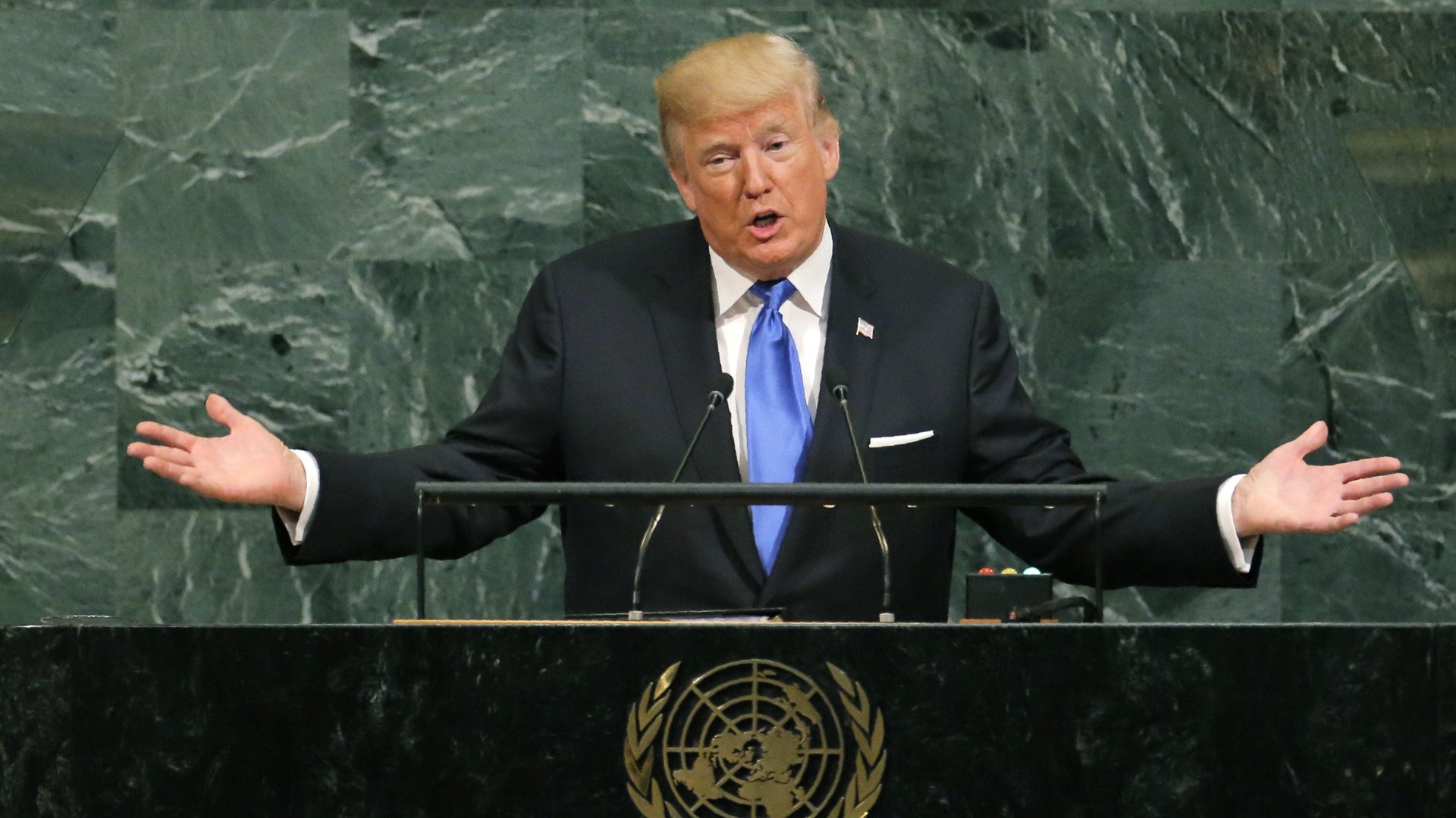Trump’s threat at the UN to “totally destroy” North Korea sounded even worse in Chinese
US president Donald Trump’s first address to the UN general assembly this morning was, for him, relatively disciplined. He spoke slowly and stuck closely to a script—albeit one full of incendiary and unconventional statements. Among the most extreme was his claim that “if [the United States] is forced to defend itself and its allies, we will have no choice but to totally destroy North Korea.”


US president Donald Trump’s first address to the UN general assembly this morning was, for him, relatively disciplined. He spoke slowly and stuck closely to a script—albeit one full of incendiary and unconventional statements. Among the most extreme was his claim that “if [the United States] is forced to defend itself and its allies, we will have no choice but to totally destroy North Korea.”
That threat was intended not only for the North Koreans, but also for the ears of the Chinese delegation: China has been North Korea’s most prominent backer for decades, and is opposed to military solutions to Pyongyang’s increasingly threatening nuclear program.
But if you think “totally destroy” sounded aggressive in English, in the Chinese translation it sounded downright apocalyptic.
The UN’s official interpreter rendered the phrase as 完全消灭 (pronounced wanquan xiaomie) in Mandarin (link in Chinese), which means something closer to “annihilate,” “completely exterminate,” or “wipe off the face of the earth.”
If you google this phrase, there are a lot of results from forums in which people discuss how to “completely exterminate” cockroaches or other insects from their homes. The phrase is made up of two parts, wanquan, which means “completely” or “totally,” and xiaomie, meaning “annihilate.”
The second word, xiaomie, is often used in a military context, as in “eliminating the enemy.” What really provides the apocalyptic flavor is the second character of that word, 灭 (mie). It is used also in such terms as “extinguish,” “wipe out,” “eradicate,” and an idiom meaning something between “reduce to ashes” and “make disappear.”
The UN’s hard-pressed simultaneous interpreters don’t have the luxury of taking time to carefully hone their translations, but the point here is not that the translation was bad. Rather, the extreme term they used in Mandarin shows how vague Trump’s boastful threat was. After all, “totally destroy” could mean a few different things: removing the leadership, crippling the economy with sanctions, performing modest, targeted missile strikes, or wiping it off the map with military force—all options that have been proposed. The translator had to choose one of these interpretations. The result will likely make Chinese diplomats more defensive than Tump may have intended.
Another Chinese translation, from the Sinovision TV network, used 摧毁 (cuihui), meaning something like “ruin” or “destroy.” That might be more accurate, but they no doubt had more time to think.
Right after Trump’s promise to “totally destroy” North Korea, he used his new favorite nickname for North Korea’s Kim Jong-un: “Rocket Man is on a suicide mission for himself,” said Trump. The interpreter handled this perfectly: “Rocket Man” became 火箭人 (huojian ren), or “rocket” plus “person.”